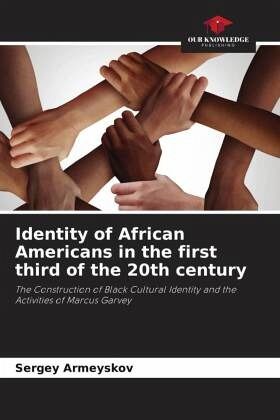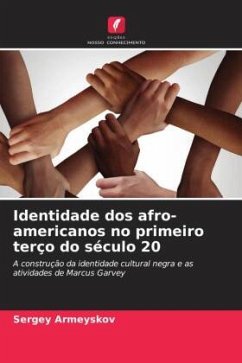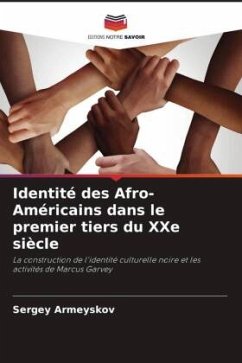
Identity of African Americans in the first third of the 20th century
The Construction of Black Cultural Identity and the Activities of Marcus Garvey
Versandkostenfrei!
Versandfertig in 6-10 Tagen
45,99 €
inkl. MwSt.

PAYBACK Punkte
23 °P sammeln!
The work is devoted to the study of the identification transformation passed by African Americans as a special group within the American society at the beginning of the twentieth century. In this process, one of the central roles was played by political activist Marcus Garvey, leader of the Back to Africa movement, responsible for popularizing the ideas of black nationalism and Afrocentrism among black US citizens. The exclusion of the latter from the American political nation through institutional racism predetermined the protest character of their identification practices. These practices co...
The work is devoted to the study of the identification transformation passed by African Americans as a special group within the American society at the beginning of the twentieth century. In this process, one of the central roles was played by political activist Marcus Garvey, leader of the Back to Africa movement, responsible for popularizing the ideas of black nationalism and Afrocentrism among black US citizens. The exclusion of the latter from the American political nation through institutional racism predetermined the protest character of their identification practices. These practices consisted of denying stereotypes about African Americans that were widespread in popular culture, as well as attempts to form alternative cultural models. Deviant African American characters labeled black people as "inferior", carrying the function of legitimizing the concept of "white supremacy" and segregation. However, it was precisely these negative stereotypes that served as an impetus for African-Americans to critically reflect on their own situation and look for ways to improve it.












